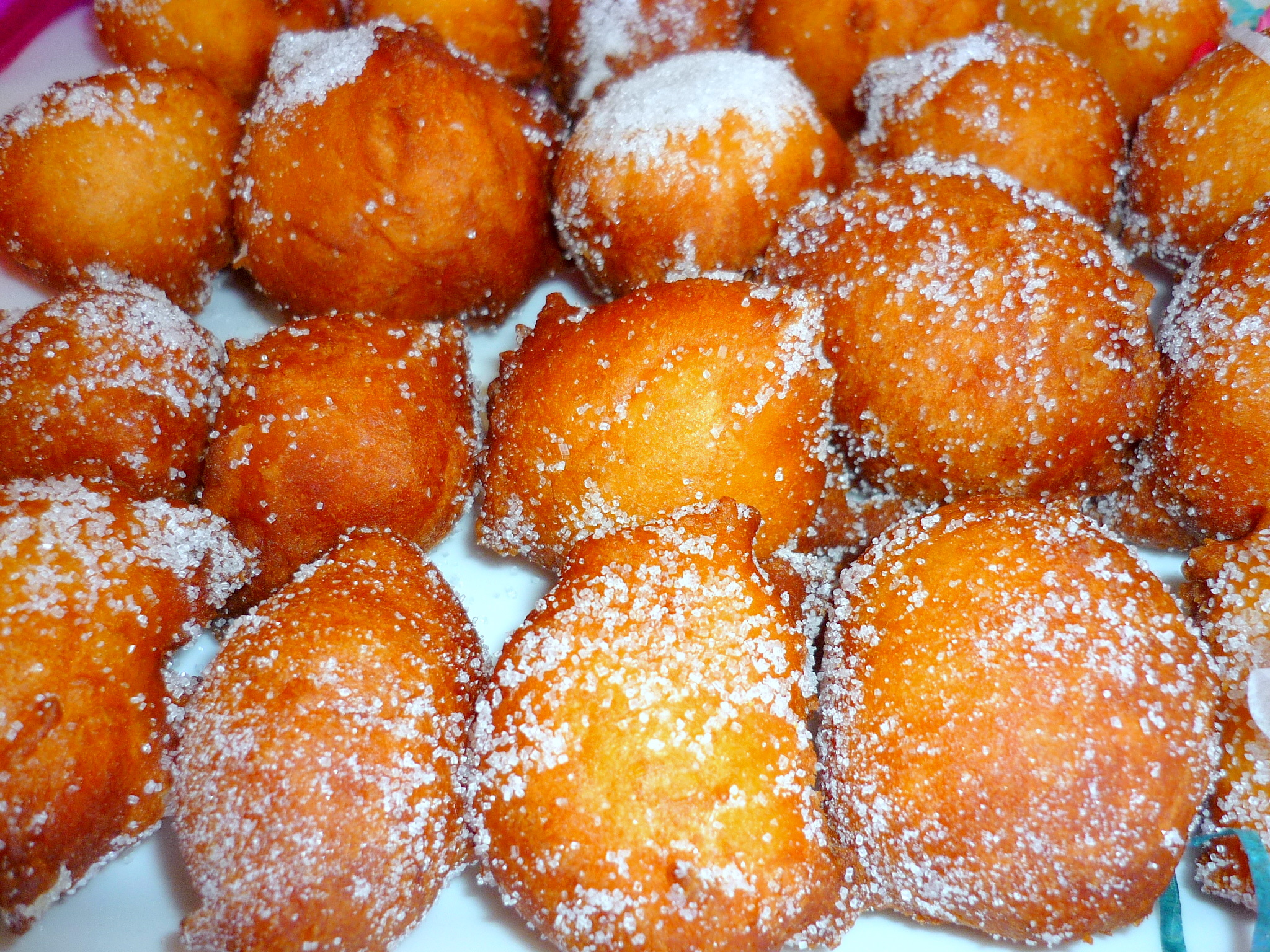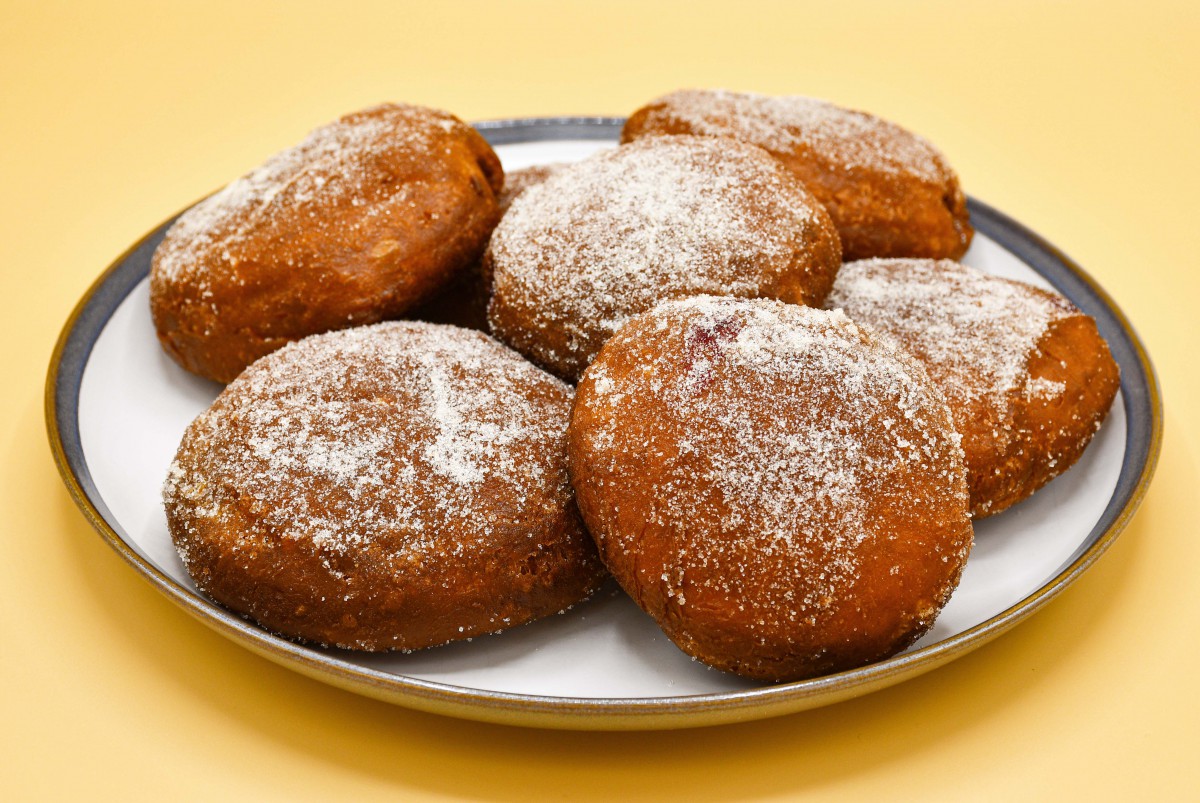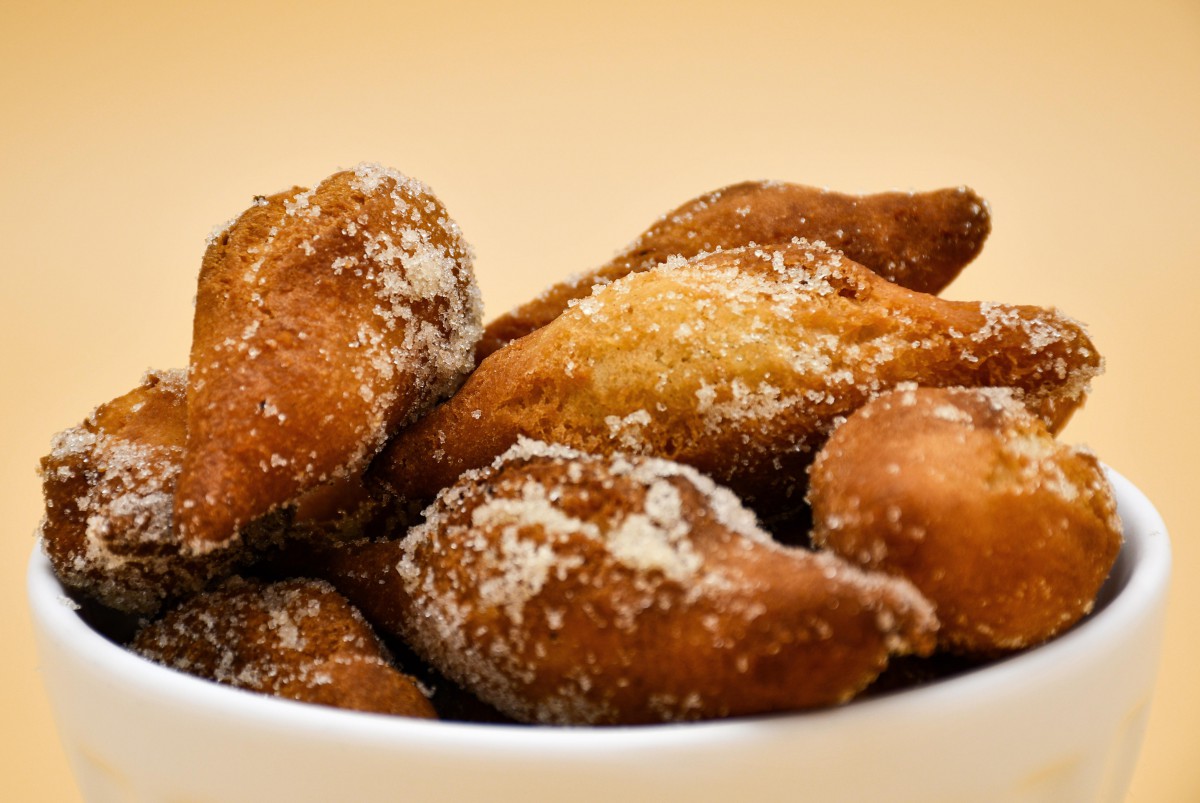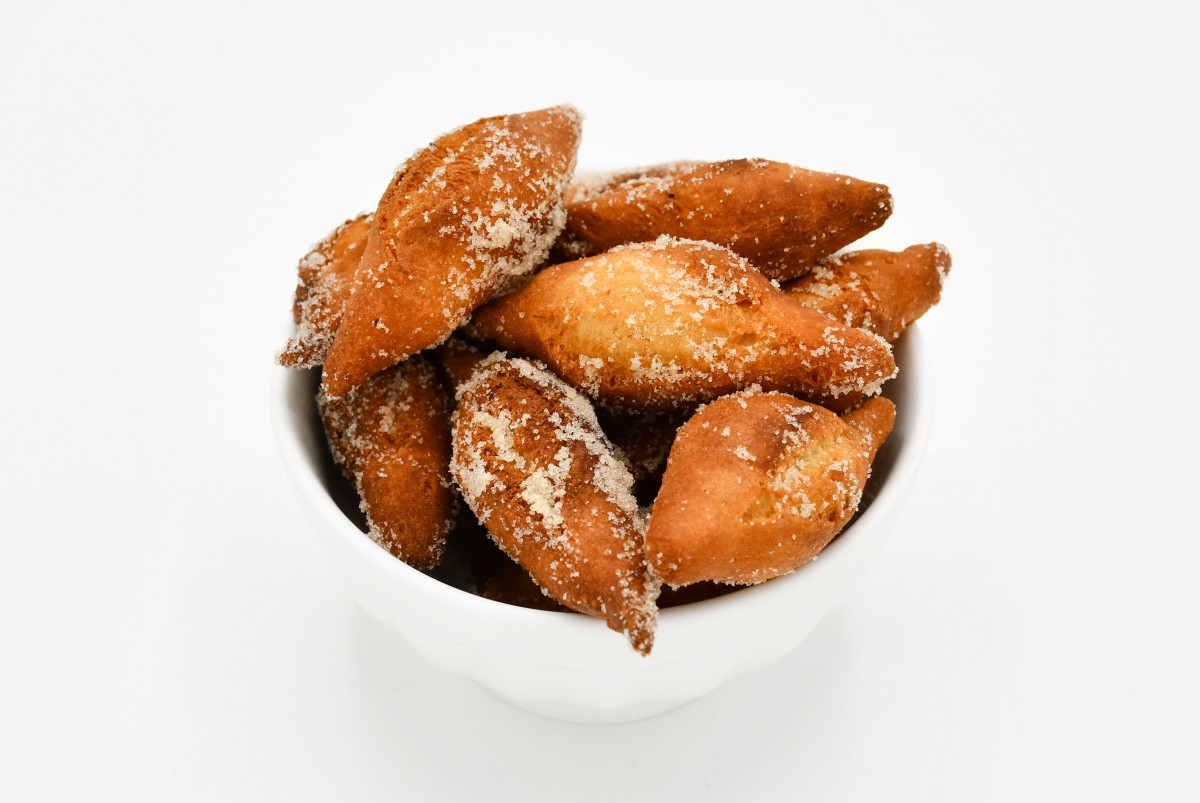Alongside crêpes and waffles, French beignets are part of the most famous dishes prepared in France for the occasion of Mardi Gras or Carnival. The pastry usually consists of deep-fried dough and is a sort of doughnut.
Watch our short video presentation about Mardi Gras in France:
About French Beignets
Beignets originate from France and, depending on the region, can be prepared in many different ways. Hence they have different names: bugnes, merveilles, oreillettes, corchevets, vautes, etc.
In Alsace alone, several beignets exist, including Fasenachtskiechle (similar to Berliners) and Schenkeles.
This article features one of the many recipes for making “Beignets de Carnaval”. We adapted it to be extremely easy to prepare.
French Beignets: Ingredients

- 1.375 g plain flour
- 3 eggs
- 75 g butter at room temperature
- 4 dessert spoons of rum or plum licqueur (licqueur de mirabelle) or other citrus based licqueur.
- a few drops vanilla essence
- 100 g de sucre semoule
- a pinch of salt
- 2 tsp baking powder
- 250 ml milk
- zest of 1 lemon
- vegetable oil for deep frying
Method for making beignets

- Mix the flour, sugar and salt.
- Add the milk and the eggs one by one, then the butter, the liqueur, and vanilla essence, then the baking powder and lemon zest.
- Do not overmix the batter, as it will make it heavier.
- Heat the oil in a heavy-based pan, and when very hot, drop in a dessert spoon full of batter in a ball shape. Cook until a dark golden brown, then drain on kitchen paper and roll in caster sugar to decorate. Cook in batches until all the batter has gone.
- You can eat them hot or cold.
As beignets are deep-fried, the odour when cooking can be strong … remember to light candles while cooking them to absorb the unpleasant smell!

In addition, I have published a more descriptive post on Mardi Gras and Carnival in France here. It tells you about its origins and traditions.
Also, if you want to learn more about the carnival of Mulhouse, click here or read it in French on our blog Mon Grand-Est!







Thank you for this article. I didn’t know that candle wax was a smell absorbent. Evidently, the English word buns must originate from the French bugnes which is just one of the inumerable varieties of this wonderful French donut.
You’re welcome! 🙂
Do you know how Beignets came to america in detail?